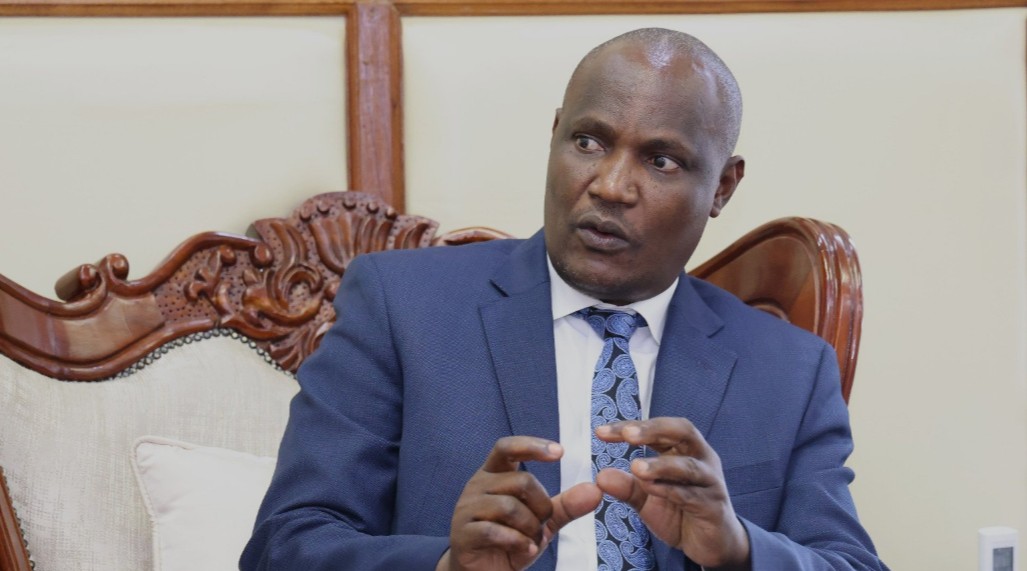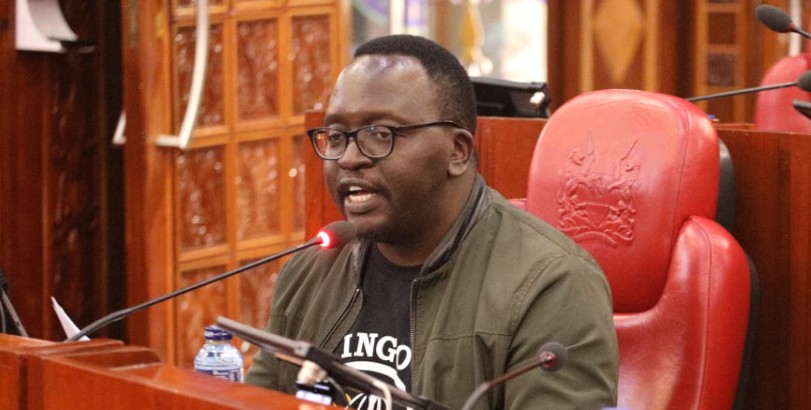Counties not against e-procurement, just need a functional system - CoG Chair Ahmed Abdullahi

The Treasury’s e-procurement initiative seeks to digitise and standardise tender processes, including advertisements, submissions, evaluations, and awards.
Wajir Governor and Council of Governors (CoG) Chairperson Ahmed Abdullahi has reiterated that county leaders are not opposed to digital procurement, but insist the system must be functional and legally sound before full adoption.
In a TV interview on Tuesday, Ahmed said governors would welcome e-procurement if it operated smoothly, but the current platform is plagued with glitches that have slowed county operations.
More To Read
- Treasury approves phased settlement of lecturers’ Sh7.76 billion arrears
- Treasury reveals Sh30 billion paid to fund road projects across Kenya
- National Assembly nullifies additional Treasury directives on eGPS enforcement
- Treasury rolls out new plan to expand financial inclusion in Northern Kenya
- 35 counties yet to adopt Treasury’s e-procurement system, says PS Odede
- Kenya borrowing Sh32.4 million every hour as total public debt hits Sh12 trillion
“We have no problem with any system that enhances accountability or automates processes. All we are saying is that it must be aligned with the law. When a system has problems, it shouldn’t be seen as a weakness to say there is a problem and postpone it for a few months or whatever time we need to fix the problem,” Ahmed stated.
Ahmed criticised Treasury Cabinet Secretary John Mbadi’s directive mandating all counties to adopt the system, stressing that counties retain constitutional authority to implement services independently.
“We do accept that even with respect to the functions that we carry out, the standardisation is with the government. However, the implementation of those functions is with us. The attempt to standardise should not impede our ability to implement,” he said.
The CoG Chair also highlighted the legal misalignment of the directive, noting that the National Assembly had annulled the circular, yet the Treasury threatened to withhold funds for non-compliance.
“Secondly, when you want to do something like that, it is good to align it with the law. The National Assembly has annulled the circular, yet the CS insists he is going to deny us funds on account of a circular. His circular is not superior to Article 60 of the Constitution; we are separate and distinct governments,” Ahmed added.
According to Ahmed, the rollout was rushed, leaving counties unable to procure goods and services efficiently.
“We have asked the CS to withdraw the circular, and it has not been withdrawn yet; we are frozen in every aspect; we cannot procure, and it is gridlocking service delivery,” he said.
He noted that the e-procurement system had been piloted in Busia, Elgeyo-Marakwet and Makueni, but all three counties reported it was not operational.
“It was piloted in the three counties of Busia, Elgeyo-Marakwet, and Makueni, but yesterday, we spoke to the governors who said it is not working in any of those counties,” he observed.
“In the process of piloting, it developed problems which needed troubleshooting so that it could run, but it didn’t work, and before we knew it, we were told that everybody must be on it,” he added.
Ahmed explained that training on the system has been insufficient, technical issues persist, and integration with IFMIS remains problematic. He stressed the need for a safety mechanism, including a parallel run with the old procurement method until the digital system is reliable.
“When you are setting up a new system, you have to pilot it, and the pilot has to run successfully. You also need to have a safety valve by allowing people a parallel run, so that if the system crashes, they are still able to use the old system,” he said.
The Treasury’s e-procurement initiative seeks to digitise and standardise tender processes, including advertisements, submissions, evaluations, and awards.
Other Topics To Read
While supporters say it will streamline operations, cut costs, and ensure fairness, governors argue it must first be fixed and aligned with legal frameworks to avoid stalling county service delivery.
Top Stories Today












































